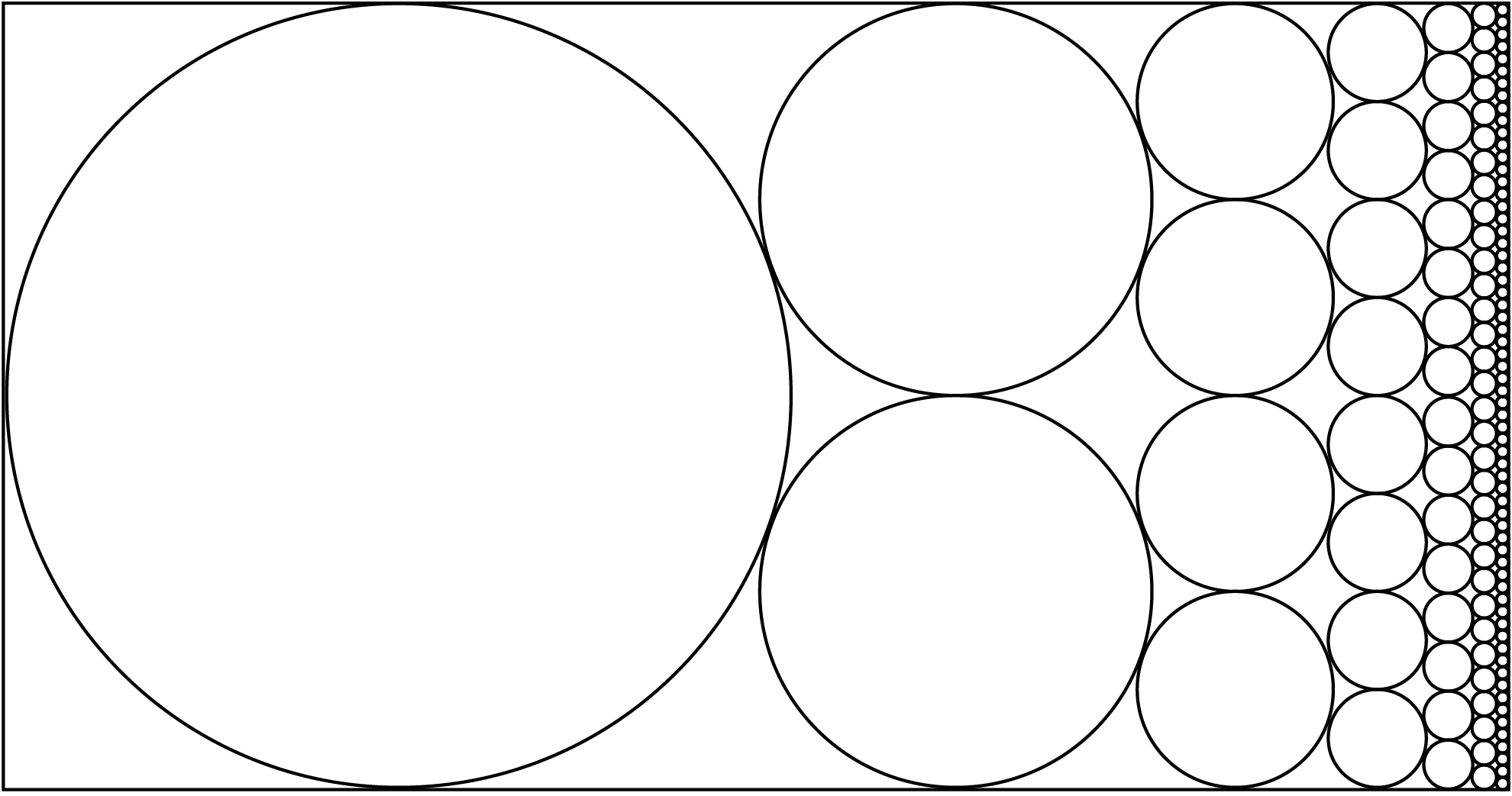 Each stack of circles has twice as many circles as the stack to its
left, with each circle having half the radius as those in the stack to
its left, and there are infinitely many such stacks. Every circle
touches another circle or the rectangle at exactly 5 points, and the
rectangle is just wide enough to hold all the circles. What proportion
of the rectangle is covered by a circle?
Each stack of circles has twice as many circles as the stack to its
left, with each circle having half the radius as those in the stack to
its left, and there are infinitely many such stacks. Every circle
touches another circle or the rectangle at exactly 5 points, and the
rectangle is just wide enough to hold all the circles. What proportion
of the rectangle is covered by a circle?
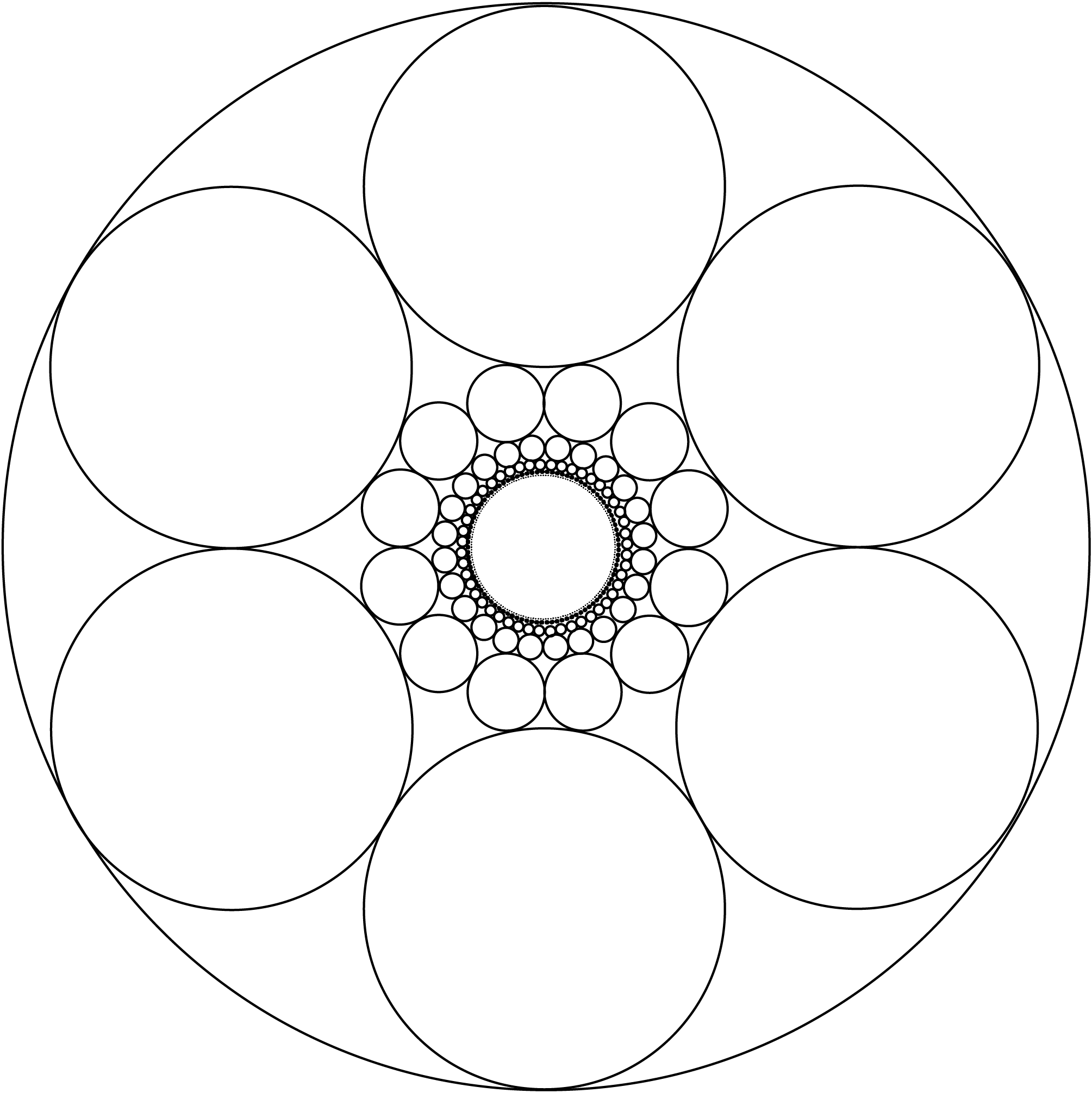 This large circle, of radius 1, contains infinitely many rings of
circles. Each ring contains a collection of equally sized circles that
are tangent to their two neighbors in the ring and are all equidistant
from the center of the large circle. The outermost ring, containing
six circles, is tangent to the large circle at six places. Every
subsequent ring has twice as many circles as the previous ring, and
every circle in the ring is tangent to exactly one of the previous
ring's circles. What is the radius of the hole in the middle of the
arrangement? What proportion of the area of the large circle is
covered by the smaller circles? For this problem, getting a
sufficiently good decimal approximation of the answers is fine.
This large circle, of radius 1, contains infinitely many rings of
circles. Each ring contains a collection of equally sized circles that
are tangent to their two neighbors in the ring and are all equidistant
from the center of the large circle. The outermost ring, containing
six circles, is tangent to the large circle at six places. Every
subsequent ring has twice as many circles as the previous ring, and
every circle in the ring is tangent to exactly one of the previous
ring's circles. What is the radius of the hole in the middle of the
arrangement? What proportion of the area of the large circle is
covered by the smaller circles? For this problem, getting a
sufficiently good decimal approximation of the answers is fine.
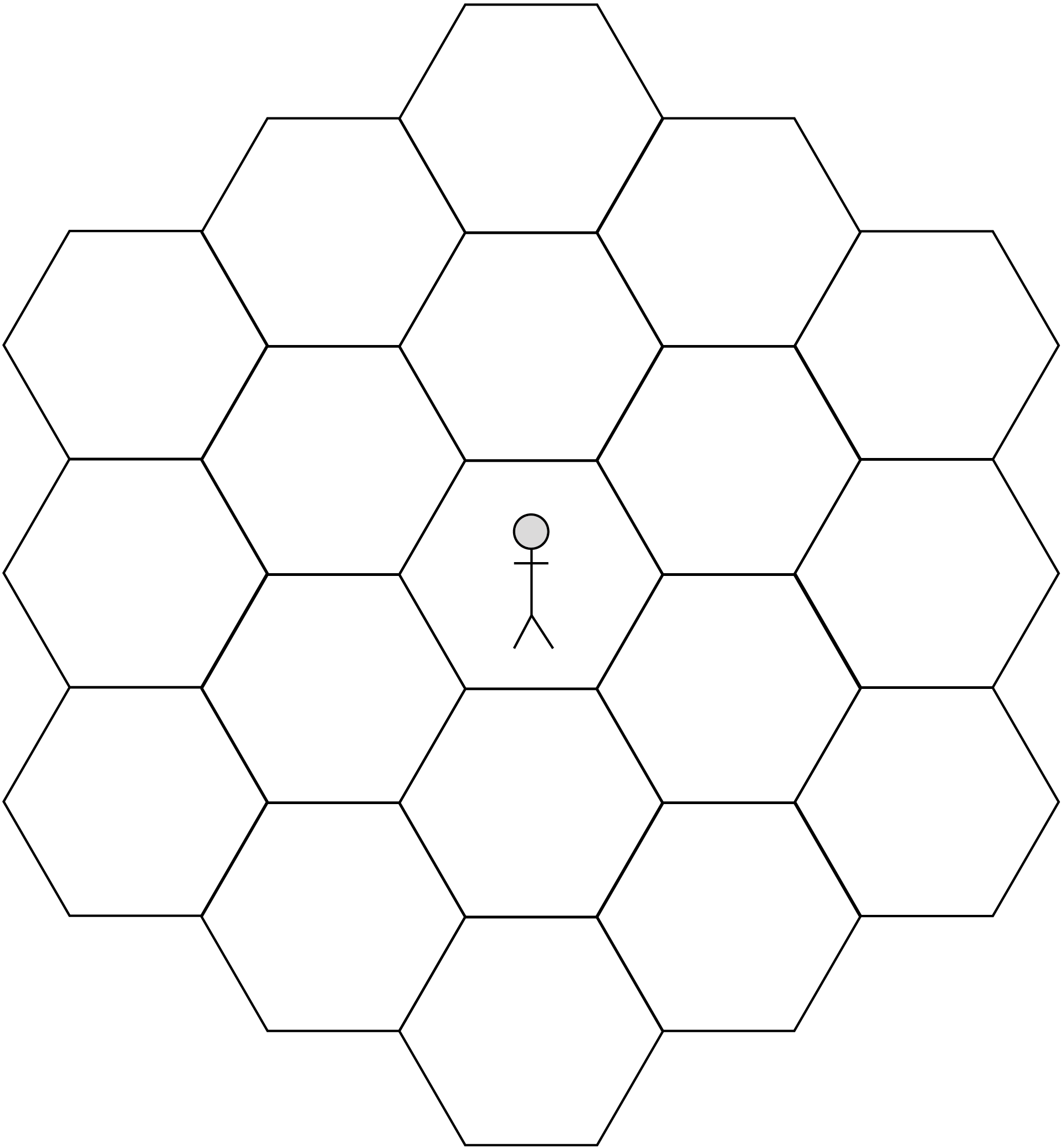 Settlers of Catan A board game is played on a hexagonal grid of 19
tiles. A 'traveler' token starts on the center tile. Each turn a die
is rolled to determine what neighboring tile the traveler moves to
(all six directions equally likely). The turn that the traveler leaves
the board, the game ends. What is the expected number of turns of the
game?
Settlers of Catan A board game is played on a hexagonal grid of 19
tiles. A 'traveler' token starts on the center tile. Each turn a die
is rolled to determine what neighboring tile the traveler moves to
(all six directions equally likely). The turn that the traveler leaves
the board, the game ends. What is the expected number of turns of the
game?
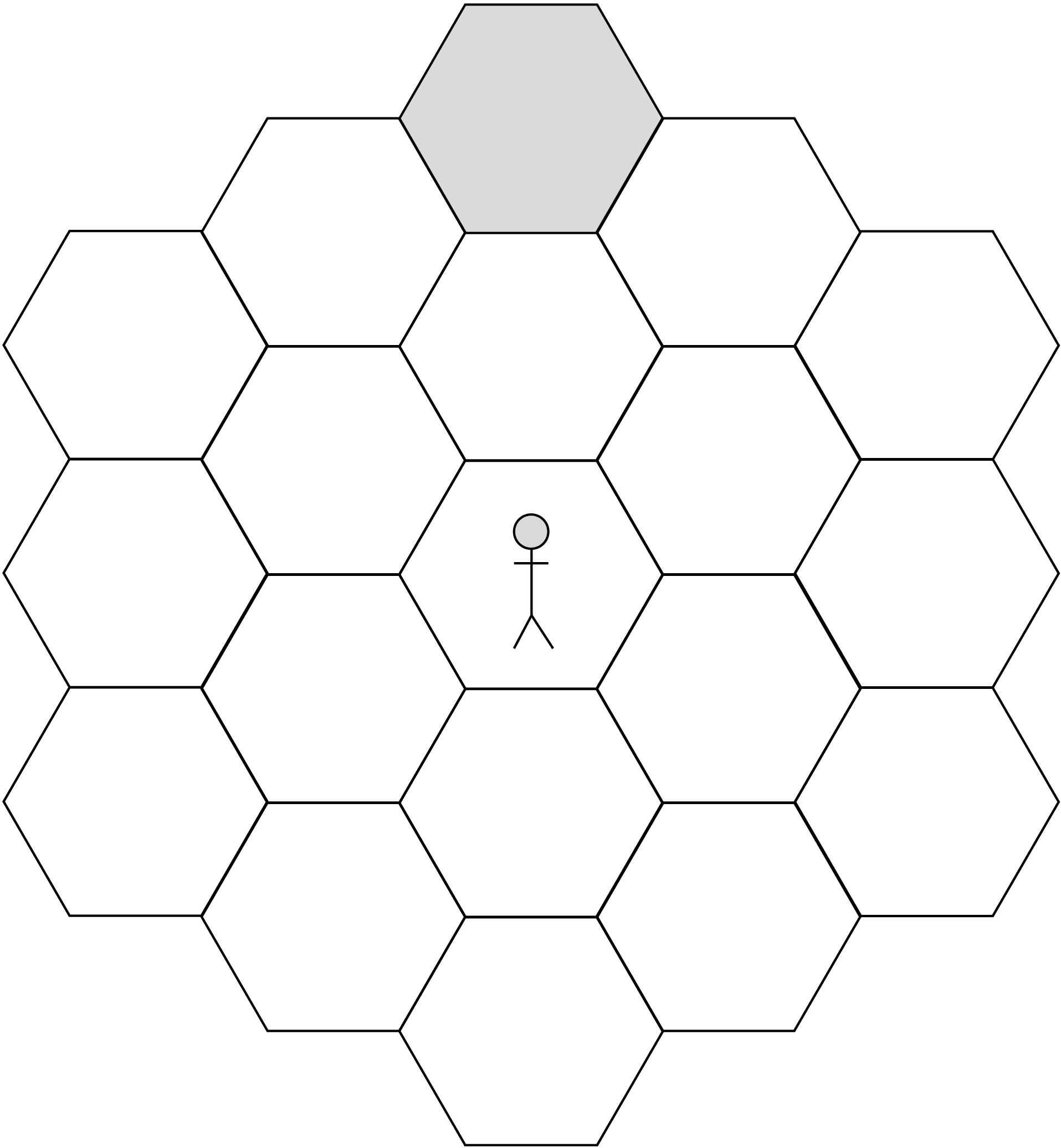 Say we know that today's game ended when the traveler exited the
'northernmost' hex of the board shaded in the picture. What is the
expected number of turns in the game conditioning on that fact?
Say we know that today's game ended when the traveler exited the
'northernmost' hex of the board shaded in the picture. What is the
expected number of turns in the game conditioning on that fact?
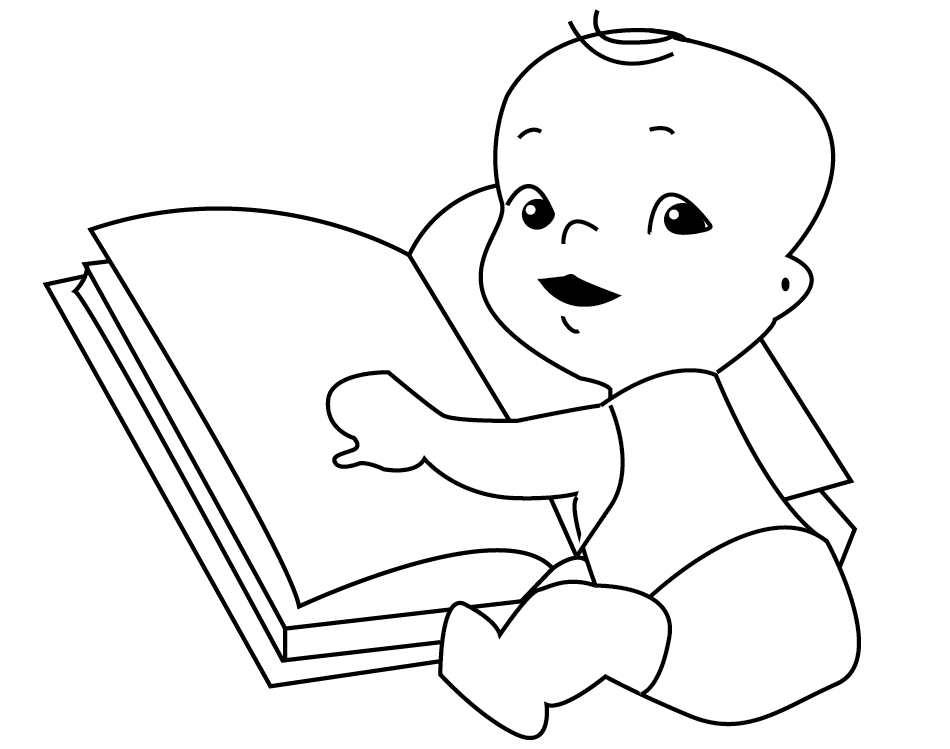 Baby Wesley reads books very quickly! This is largely because whatever
page he is on, say page k, of an N-page book, he selects the next page
to visit uniformly randomly out of the remaining pages (so probability
1/(N-k) each for the next page to be page k+1, k+2, ..., N). He does
this consistently until he finishes the book by reaching the final
(Nth) page. He just picked up a book with 26 pages to read (so he's
currently on 'page 0'), and his favorite picture of a monkey is on
page 13. What's the probability he visits this page during this
reading?
Baby Wesley reads books very quickly! This is largely because whatever
page he is on, say page k, of an N-page book, he selects the next page
to visit uniformly randomly out of the remaining pages (so probability
1/(N-k) each for the next page to be page k+1, k+2, ..., N). He does
this consistently until he finishes the book by reaching the final
(Nth) page. He just picked up a book with 26 pages to read (so he's
currently on 'page 0'), and his favorite picture of a monkey is on
page 13. What's the probability he visits this page during this
reading?
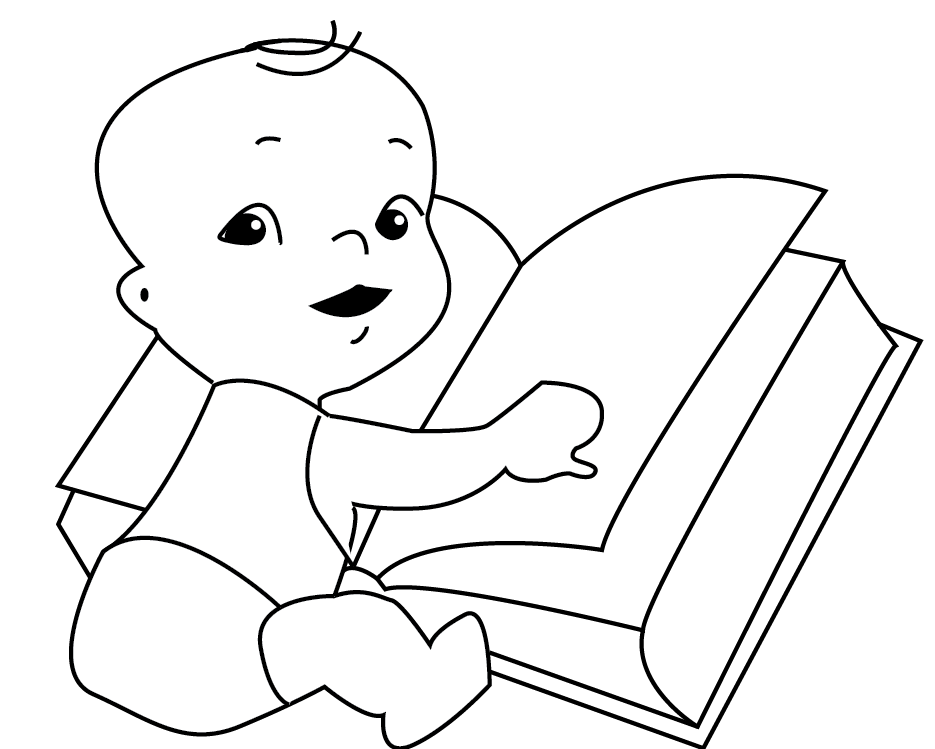 What is the probability that Wesley never flips only one page (that is
never visits consecutive pages, including not visiting page 1 after
starting at 'page 0') as he goes through the entire 26 page book? What
happens to this probability as the length of the book N gets larger
and larger?
What is the probability that Wesley never flips only one page (that is
never visits consecutive pages, including not visiting page 1 after
starting at 'page 0') as he goes through the entire 26 page book? What
happens to this probability as the length of the book N gets larger
and larger?
